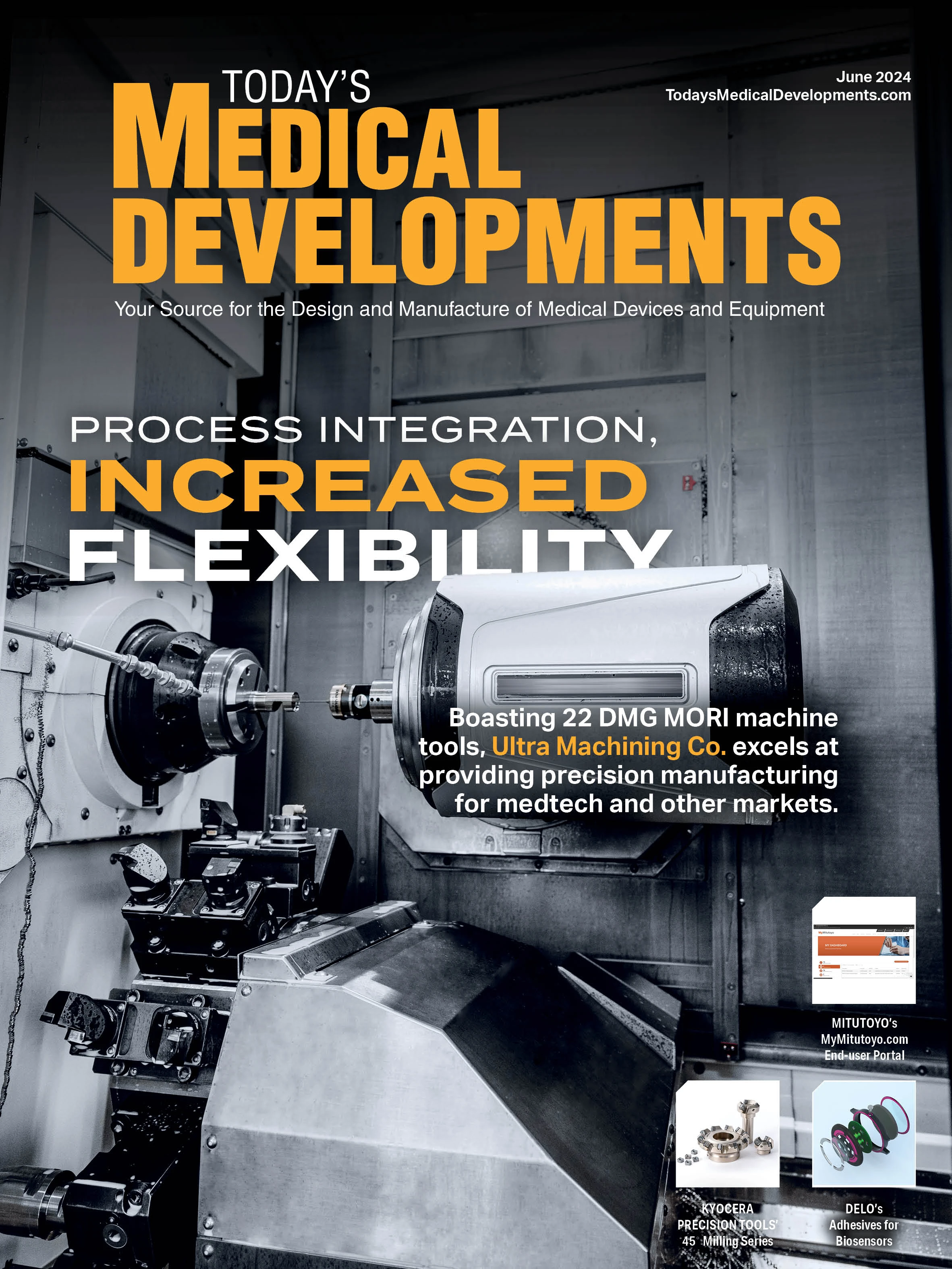
SPT Vilecon is a fully integrated provider of development and manufacturing services to the medical device industry, working at the intersection of design, development, and manufacturing to allow customers to move a new product from concept to commercialization, and with in-house tool building in place to ensure shortest possible lead times. Certified according to ISO 13485, they provide product development support as well as injection molding and other manufacturing services to many companies in northern Europe.
Recognizing that speed is always of the essence, SPT decided to implement Nexa3D Freeform Injection Molding. The goal was to help customers shorten time-to-market on complex medical devices in demanding medical-grade materials and to expand on the range of materials that can be quickly and reliably used in prototyping and early device test manufacturing.
Production-grade prototypes
Medical device manufacturers face rigorous regulatory requirements when introducing new devices into the market. A medical device needs to be safe and efficient to use for the intended purpose, and it’s the manufacturer’s job to demonstrate a device meets these essential requirements. To do so, manufacturers must develop elaborate test protocols that evaluate every aspect of device manufacturing and use, and ensure the tests are performed to accurately represent the conditions that apply to the manufacturing and use of the finished medical device. The later these tests are done, the more severe the consequences if a test fails. Medical device companies are constantly on the lookout for tools and methods to improve early-stage device testing to reduce development risks and costs of rework.
SPT Vilecon often works with silicones, a group of materials heavily used in the medical device industry due to excellent chemical resistance, mechanical performance, and biocompatibility. However, silicone parts are notoriously difficult to prototype and test, since most grades need to be injection-molded to achieve their full performance.
Early verification, new applications
To meet customer demands for rapid prototyping of silicones, and other complex medical-grade materials, SPT Vilecon wanted a prototyping platform to integrate seamlessly with their existing tool-building and injection-molding capabilities. Other key requirements included biocompatibility, compatibility with the wide range of thermoplastics and silicones already in use, and design freedom for complex part prototyping. In the end, they decided to implement Nexa3D’s XiP desktop system and Freeform Injection Molding with xMOLD resin. This compact, highly versatile platform was the only alternative meeting all the key requirements while also enabling SPT Vilecon to expand into new domains based on metal and ceramic injection molding.
2-day development, verification
With Freeform Injection Molding, SPT Vilecon could offer a customer developing an intravenous silicone product early design and material verification by using 3D-printed tools.
The use of 3D-printed xMOLD tooling enabled the customer to obtain injection-molded silicone parts in a medical-grade silicone within two days, and to verify key design and performance aspects.
At the same time, important design input was collected from the first tests, which could be integrated in a second iteration taking only a couple of hours to complete. In comparison, the conventional metal tooling normally needed for this kind of verification would have taken more than six weeks to design and procure, and the adjustments needed for the second iteration would have taken the inhouse tool shop a week to complete.
The costs of the 3D-printed silicone molds for the first and second iterations were less than €2,000 combined. And the two-day design cycle was more than 90% faster than the speed achievable with conventional metal tooling.
Based on the design input collected from the first two iterations, design of the silicone part was approved, and the manufacturing of a metal tool could be initiated with full confidence of part moldability and performance. The collected design input and learnings enabled the in-house tool shop to produce the metal tooling within four weeks, with no iterations needed in the final tool.
Compliance with timeline, budget
Medical device manufacturers face strong pressures to bring new and innovative products to market. Robust and valid prototyping and verification is key to minimizing costs, time, and risks associated with development. By implementing Freeform Injection Molding, SPT Vilecon has created a new toolbox for medical device companies seeking to accelerate their innovation and obtain early verification of part performance and moldability.
Using the XiP with Freeform Injection Molding, a medical device manufacturer could save six weeks, and 87% of prototyping investments, while removing a challenging silicone component from the critical path of product development.
SPT Vilecon has expanded injection mold prototyping into silicone, metal, and ceramic, to provide medical device manufacturers with a wider selection of product development and verification services.
Nexa3D
https://nexa3d.com
SPT Vilecon
https://www.sptvilecon.com

Explore the June 2024 Issue
Check out more from this issue and find your next story to read.
Latest from Today's Medical Developments
- Arcline to sell Medical Manufacturing Technologies to Perimeter Solutions
- Decline in German machine tool orders bottoming out
- Analysis, trends, and forecasts for the future of additive manufacturing
- BlueForge Alliance Webinar Series Part III: Integrate Nationally, Catalyze Locally
- Robot orders accelerate in Q3
- Pro Shrink TubeChiller makes shrink-fit tool holding safer, easier
- Revolutionizing biocompatibility: The role of amnion in next-generation medical devices
- #56 Lunch + Learn Podcast with Techman Robot + AMET Inc.





